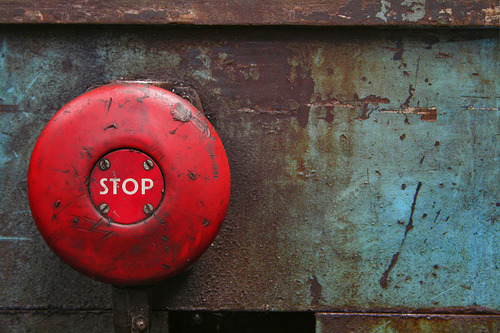Fair enough (on the point of the Cold War being over). But another can easily begin anew; there's still some minds here and abroad that think that the People's Republic of China, North Korea (People's Republic), and whatever other foreign nation that is aspiring and accumulating wealth will beceome the next great adversary to the US in order to some intangible title of the next (and perhaps last) Superpower of this world. Are all "red buttons, telephones, or switches" that ever once existed, (if there was ever a citable example of this, which I'm working on) specifically and solely for the purpose to cause some of destruction sequence, now deactivated and done away with just because the USSR economy set itself back by decades?
Though, I'll argue, just because the origins of the symbolic icon have ceased to be pertinent, (and the origins of a big red "indicator" do not necessarily begin with that of post-World-War/Cold War films and comics, as I've only just begun to find out; though they certainly have been the most enduring, at least here in North America) does that also signify that the connotations have, or should be, lessened?
I'm glad you brought up the point of industrial utilization, as many common early 20th century newspaper factories had one installed, and yes, some of them were actually red, (though a few were not actually on the production floor, but in the switches office on a second floor) and we even have modern examples of where we see them. Modern fire alarms are a fine enough example of this practice, as they are red switches used in the event of indicating "panic", or simultaneously halting activity and alerting all around.
I even came across this historical anecdote of where the
molly-guard first originated from:
molly-guard
We now see molly-guards (or plexisglass interference lids) ubiquitously, usually installed right upon a fire alarm to prevent any false twitches of it. And just as I'm about to wrap this up, the reason and initial premise of
Staples' "easy button" is a direct anti-thesis to the notion that there is a
panic button (the joke is an implied 'no need to panic, when you have the easy button instead', as represented by the office-supplies company of Staples).
Lastly, I didn't even have to ask:
images and conceptual art of the symbolism of "
The Red Button" are more than welcomed here
(so long as the meaning readily applies).

Push the button by INoxKrow